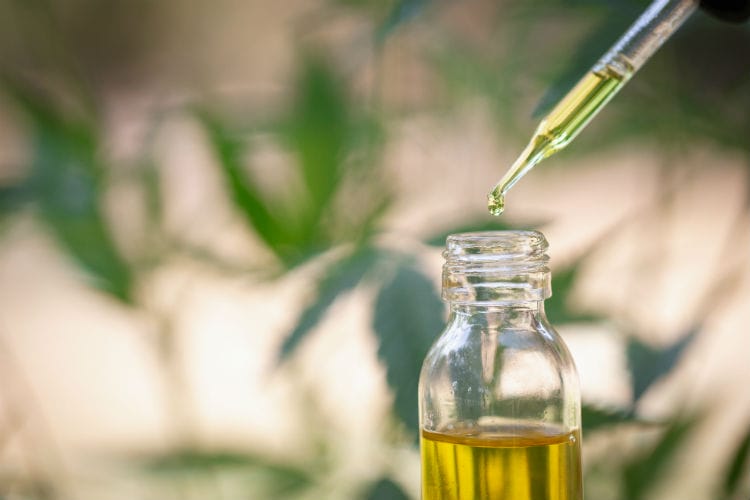Legal
CBD: What employers need to know
By Dr. Rajy Abulhosn
Feb. 11, 2020
 Employers don’t have to be operating in states where marijuana is now legal to be impacted by its changing status. Cannabidiol, a compound derived from the cannabis plant, is already available legally in every U.S. state. CBD oil and products containing CBD are impacting workplace drug policies in ways that are still unclear.
Employers don’t have to be operating in states where marijuana is now legal to be impacted by its changing status. Cannabidiol, a compound derived from the cannabis plant, is already available legally in every U.S. state. CBD oil and products containing CBD are impacting workplace drug policies in ways that are still unclear.
Confirm BioSciences, a national provider of drug testing supplies and laboratory services, has issued a report on the effect of CBD. As the medical review officer of the organization, here I answer the most common questions employers ask about this increasingly popular substance.
Q: What exactly is CBD?
A: CBD, the shortened name for cannabidiol, is an extract from cannabis, the plant that produces marijuana. It can also be obtained from the hemp plant, another form of cannabis that has extremely low levels of THC, the substance that instills a high. Hemp became legal to grow commercially in every U.S. state in 2018.
Also read: Opening up the workplace medicine cabinet
Q: What are the legitimate uses for CBD? Are there any uses that can be prescribed by a physician?
A: From a scientific perspective, the only medical condition for which CBD has been approved is a certain type of seizure disorder. The medication is called Epidiolex, and it was approved in 2018. As far as other conditions for which medical providers may recommend CBD oil, the problem is that there have been a very limited number of medical studies, with conflicting results. We’re simply not there yet in terms of scientific support.
Q: Will using CBD compromise employee performance in any way?
A; To answer this, we run into the question of whether the CBD is 100 percent pure, which is defined as containing less than 0.3 percent THC. If a product contains pure CBD, there should not be any employee performance issues. The challenge is that the vast majority of CBD products are not pure. Up to 70 percent of CBD products are mislabeled. According to a recent Journal of the American Medical Association study in which 84 different CBD products were analyzed, THC was present in 18 of the products in varying amounts.
Q: Are there any circumstances or occupations in which CBD should never be used by employees?
A: If the product used by the employee meets CBD purity standards, there should be no physical or mental impairment. The real issue is purity.
Q: How long will CBD stay in a person’s system?
A: It depends on the individual. For some, CBD oil will remain in the system for two to five days. For others it can take weeks to resolve. The typical time is around one to two weeks.
Q: If CBD is legal, why are workers using CBD-infused products failing drug tests?
A; The challenge with CBD in the workplace is that, either knowingly or unknowingly, people are using CBD tainted with THC. So people might be buying a product with CBD to help them sleep, and if that product also contains THC, it may be the THC that is impacting their sleep instead of the CBD.
Also read: Managing people in the growing cannabis industry
Q: What can be done to ensure that CBD-infused products are pure and don’t contain THC?
A: Currently no governing or regulatory body is tasked with ensuring the purity of CBD. The oversight just isn’t there to ensure that when people are buying a CBD product, they are getting pure CBD oil. For workers and employers to be adequately protected, this situation has to change.
Q: If an employee using a CBD, or a CBD-infused product, fails a drug test, what then? Whose responsibility is it to determine if the employee hasn’t violated workplace policies?
A: It’s not the employer’s responsibility to ensure that drugs do not show up on an employee’s drug screen. The employer’s role is simply to make sure that the chain of custody is intact. If the individual has signed documentation confirming that the sample provided is theirs and the sample was sealed in their presence, the employer should not be held liable.
There is another issue, however, due to the changing legality at the state level for recreational and medicinal marijuana. In states where marijuana is legal, a company may still be able to have a zero-tolerance policy (please refer to your state’s specific law regarding recreational and/or medical marijuana use). And for companies subject to federal standards, marijuana is still a Schedule 1 drug under the U.S. Controlled Substances Act. It’s in those states in which marijuana has been legalized recreationally that a many employers look for guidance.
Q: What steps should employers be taking in regard to CBD?
A: For employers with a stated drug policy, it makes sense to educate their workers about the risks inherent in CBD oil. If they don’t feel comfortable providing that information firsthand, they should partner with a qualified third party who can provide it. The employer should never put itself in the position of contradicting an employee’s physician. That way if an employee is considering using a CBD product, they can discuss their employer’s drug testing program with their doctor.
Q: Should employers be concerned about the proliferation of CBD as a legal substance?
A: It would be wise for employers to educate their workers about CBD. The ultimate responsibility, however, lies with the employee. It’s up to every individual to know exactly what they’re putting in their body and what may happen as a result.
.
Schedule, engage, and pay your staff in one system with Workforce.com.